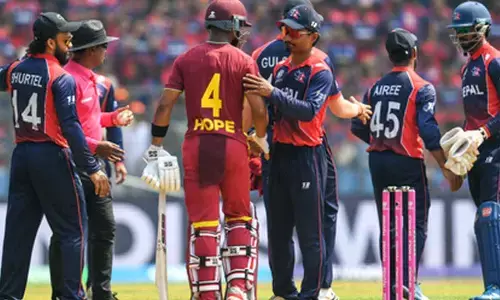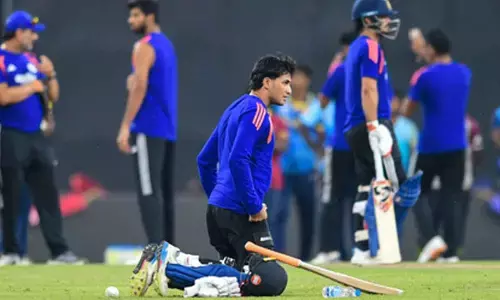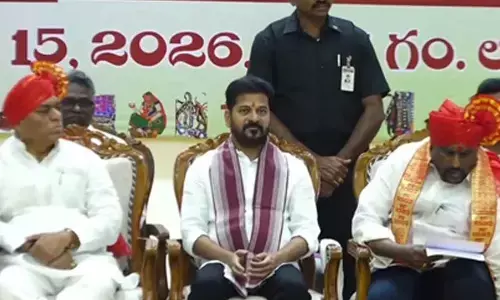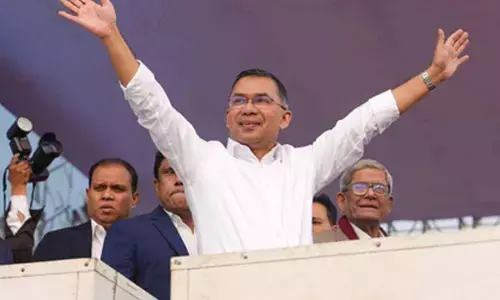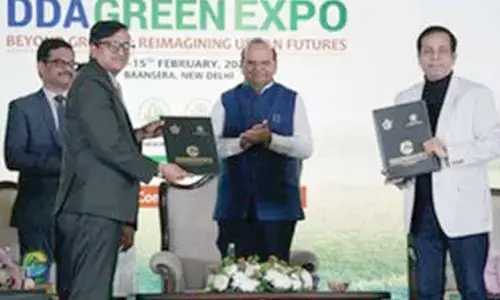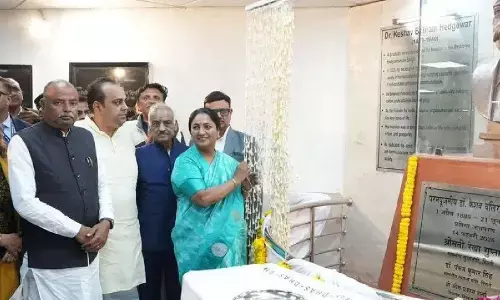Edutainment show sparks conversations around sex education at home
Share :
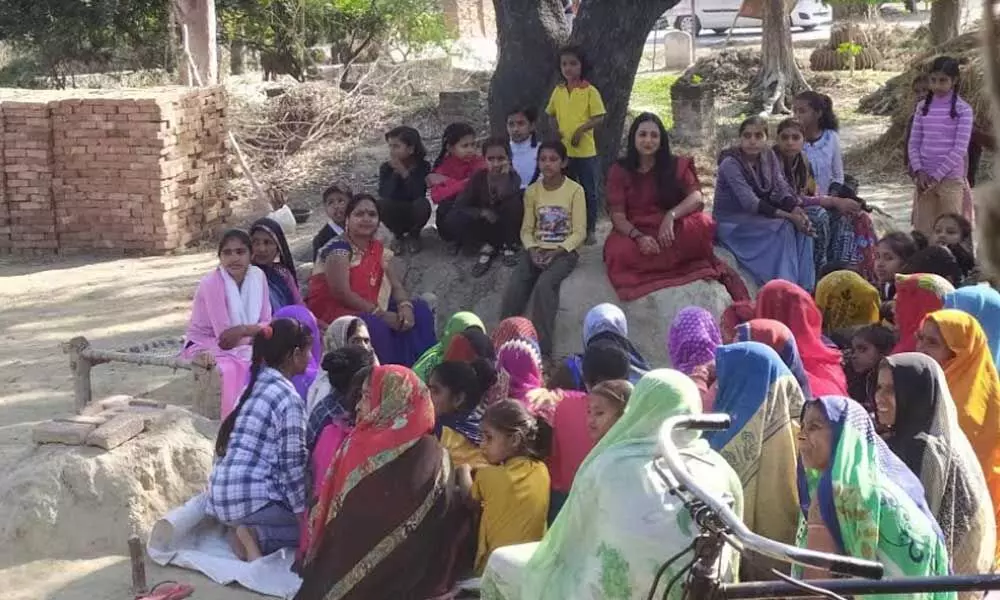
Edutainment show sparks conversations around sex education at home
India's rural communities remain underserved when it comes to information and education about sexual health, birth control, issues pertaining to adolescence, teen pregnancies, menstrual needs and more. However, an informative and entertaining show like 'Main Kuch Bhi Kar Sakti Hoon' (MKBKSH) has played a significant role in normalising taboo conversations in Bairia village in the Kanpur Dehat district of Uttar Pradesh.
India's rural communities remain underserved when it comes to information and education about sexual health, birth control, issues pertaining to adolescence, teen pregnancies, menstrual needs and more. However, an informative and entertaining show like 'Main Kuch Bhi Kar Sakti Hoon' (MKBKSH) has played a significant role in normalising taboo conversations in Bairia village in the Kanpur Dehat district of Uttar Pradesh.
You can watch their story here -
This is remarkable because even in educated, urban families, talking about subjects like reproduction and sex is quite unheard of. Parents in Bairia are however taking the lead to initiate such difficult conversations. This hit series has already inspired young girls in Bihar's Nawada district to create a sanitary pad bank and Bundelkhand's 23-year-old Ladkunwar Kushwaha to break social stereotypes to pursue her college education.
Poonam Muttreja, Executive Director of Population Foundation of India, that produced this entertainment-education show is happy that the organisation's attempt to bring potentially life changing content to India's rural communities is successfully working. She says, "Adolescence is a time of change and very often young people turn to either their peers or the internet for information. Due to lack of resources, many young people are unable to access correct and non-judgmental information about their health and wellbeing. Instead, they are fed on an unhealthy diet of whatever is served online. I am glad that MKBKSH has enabled parents in Bairia village to talk about these important issues sensibly. A healthy discussion related to sexual activities within the family can go a long way in encouraging the next generation to make important decisions about their reproductive and sexual health including contraception and planning their families, which in turn can be transformative for India."
16-year-old Priya Singh from Bairia village says, "After watching the serial, my mother has started talking very openly about these things."
Her mother, 34-year-old Suman Singh, who exemplifies the attitudinal change, explains why this was necessary, "My husband and I had hidden a condom packet at home and our daughter found it. I realised that if I don't tell her, she will ask somebody else about questions that were on her mind. I needed to be honest and frank. So I told her that this was a contraceptive that prevents pregnancy as well as sexually transmitted diseases."
It wasn't always like this in their home though, "Earlier, I would hide such things from them. After watching 'Main Kuch Bhi Kar Sakti Hoon', there was a complete shift in my attitude. Earlier my husband too wanted our girls to study only till class 5 or 8 but now, inspired by the series, he stops me from discussing their early marriage." Her husband, Pradeep Singh (38) adds, "I know now that a small family is a happy family. The larger the family, the more problems it has to deal with."
Influenced by Dr. Sneha Mathur, the protagonist of the series, a Sneha Group has also been formed where women as well as girls discuss issues like family planning, hygiene and sanitation. The women in the group say in unison, "Yes, we talk openly about family planning, menstruation, hygiene and sanitation. We don't hide anything from our children. Now our girls are learning a great deal about menstruation. Earlier they wouldn't share anything. We learnt so much about sanitation from the serial. We now know that a toilet at home is important for convenience as well as for preventing diseases. We are taking forward the message of the series, "Build a toilet and close the door to diseases."
The creator of the show, noted film and theatre director Feroz Abbas Khan says, "Content can just be entertaining, or it can drive home an important message without sounding condescending. It is important to respect our audiences, to appeal to their intelligence and to satisfy their thirst for information they otherwise have no access to. Through the series, we have tried to normalise conversations that are usually not discussed openly. And I am very encouraged that we have managed to break the taboos to the extent that parents in far-flung rural areas are now discussing family planning with their kids."
Over three seasons, Main Kuch Bhi Kar Sakti Hoon has dealt with issues that few TV shows dare tackle. The first season of the show comprising 52 episodes talked about issues like child marriage, sex selection at birth and gender discrimination. The second season of 79 episodes focused on youth and adolescents. The third season which speaks about issues like sanitation, hygiene and family planning completed its run of 52 episodes in 2019. Season 3 of the show was produced with support from the REC Foundation and Bill & Melinda Gates Foundation (BMGF). The first 104 episodes were supported by DFID (UK's Department for International Development), and BMGF also supported 27 episodes of Season 2.

